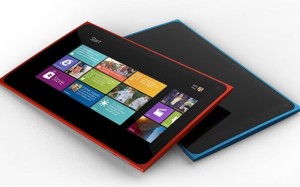If true, reports that Nokia plans to release a tablet running Microsoft’s failed Windows RT OS are “bizarre” and “highly surprising” according to analysts who think the company should focus on its struggling smartphone business.
The Finnish phone maker is going to launch the tablet in September, according to The Verge. The plans, if they turn out to be true, are surprising for a couple of reasons, said Informa Telecoms & Media analyst Malik Saadi.
“First of all the OS has been a flop, there is no doubt about that. So the choice to go with Windows RT is bizarre,” Saadi said.
Just 200,000 Windows RT tablets were shipped during the second quarter, according to IDC.
Secondly, putting out a tablet at this point makes little sense because Nokia is still struggling make its Windows Phone-based smartphones a success. Even if sales are improving, Nokia still needs to focus its efforts on that task, according to Saadi.
“At this stage it is really risky for Nokia to enter the tablet market,” Saadi said.
CCS Insight’s director of research Ben Wood agreed on both points.
“I have to say I find it highly surprising that Nokia would want to launch a Windows RT tablet … A more important priority is a smartphone with 5-inch plus screen,” Wood said.
The only reason it might make sense is if Nokia has a large order from an operator for such a product, according to Wood.
The report comes as Microsoft’s few remaining partners on Windows RT seem to be backing away from the OS. That makes a product from Nokia even more difficult to understand, Wood said.
Last month, Lenovo discontinued online sales of the Yoga 11 convertible with Windows RT, which made analysts question the vendor’s commitment to the OS. Asus has said it is pulling back from Windows RT to focus on Windows 8 tablets running on Intel processors.
If Nokia is dead set on putting out a tablet, it should also choose Windows 8 over Windows RT, according to Saadi.
During the second quarter, the number of tablets running regular Windows increased to 1.8 million, according to IDC. To date, Android has been far more successful than the Windows 8 platform. However, Microsoft-based products are starting to make notable inroads on the market, it said.
The number of Android-based tablets increased year-on-year by over 160 percent to 28.2 million during the second quarter, while Apple shipped 14.6 million iPads, a 14 percent decrease.
Overall, the worldwide tablet market slowed down during the second quarter as total volumes fell by 9.7 percent from the first three months of the year. However, the 45.1 million units that were shipped in the second quarter was a 59.6 percent increase from the same quarter last year, according to IDC.
Nokia would not comment on the reports.





